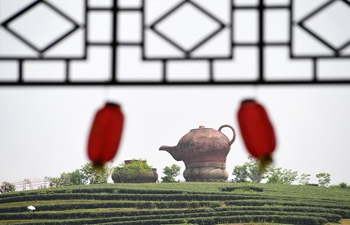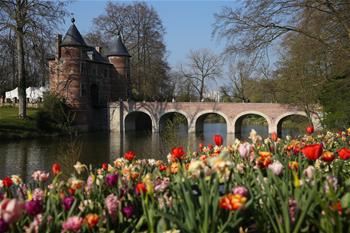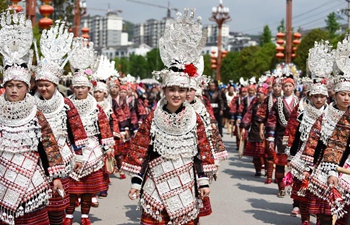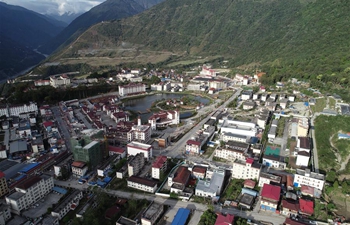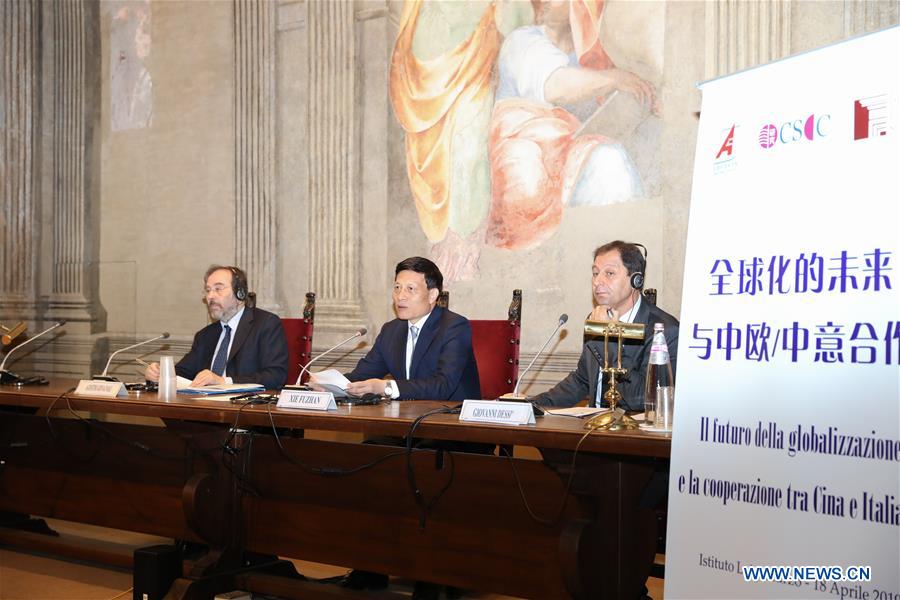
Xie Fuzhan (C), president of the Chinese Academy of Social Sciences (CASS), delivers a speech at a seminar in Rome, Italy on April 18, 2019. A seminar was held here Thursday, where Chinese and Italian scholars gathered to discuss Sino-Italian and Sino-European relations as well as globalization. (Xinhua/Cheng Tingting)
ROME, April 19 (Xinhua) -- A seminar was held here Thursday, where Chinese and Italian scholars gathered to discuss Sino-Italian and Sino-European relations as well as globalization.
"The signing of a memorandum of understanding on jointly advancing the Belt and Road construction between China and Italy will further tap bilateral cooperation potential," said Xie Fuzhan, president of Chinese Academy of Social Sciences (CASS), in a speech delivered at the seminar.
Xie said China will participate in the renovation and expansion of Italy's Genoa and Trieste ports, and in the future the two ports are expected to be the new Belt and Road hubs in the Mediterranean region, which will give full play to Italy's regional and economic strengths in Belt and Road construction.
Xie believed that by enhancing communication and exploring consensus, the European Union's Strategy on Connecting Europe and Asia and the Belt and Road Initiative can boost Asia-Europe cooperation with mutual benefits and win-win outcomes, and better tackle global challenges.
When it comes to the future of globalization, Agostino Giovagnoli, Executive Board member of Italy's Luigi Sturzo Institute (ILS), said: "We cannot talk about contemporary Italy -- as for any country in the world -- without talking about the globalization process in which China is playing an increasing role."
Great importance has also been attached to the cultural globalization. A common vision is indispensable to the development of stable bilateral relations and mutually-beneficial cooperation, according to Giovagnoli.
"A common vision means a whole of knowledge, opinions, and perspectives based on an agreement not limited to extemporaneous interests and goals. It requires an in-depth intercultural dialogue."
"This is the reason why -- among the five (cooperation) priorities of the Belt & Road Initiative -- there is the goal of boosting people-to-people relations. This means developing a robust intercultural dialogue... it must involve as many people as possible," said Giovagnoli.
The seminar was jointly organized by CASS, ILS and Italy's Center for the Study of Contemporary China.

